You can file a wrongful death case if winter weather has played a role in your loved one’s death, but you must prove that the accident wouldn’t have occurred without someone else’s negligent or reckless actions or inactions. Property owners and others have a legal duty to follow snow and ice removal laws. Drivers also must make adjustments for the weather. When they fail in that duty, they may be liable for damages.
It can be difficult to prove liability in a wrongful death claim based on a winter weather incident, but an experienced attorney will gather critical evidence and determine if another party might owe you compensation for your loved one’s death.
ON THIS PAGE
- How Winter Weather Can Affect Who's Liable in an Accident
- Types of Compensation Available in Wrongful Death Cases
- Proving Negligence in Winter Weather Conditions
- Comparative Negligence in Winter Weather Cases
- Challenges in Filing a Winter-Weather-Related Wrongful Death Case
- Get Legal Representation for Your Winter Weather Wrongful Death Claim
How Winter Weather Can Affect Who's Liable in an Accident
Several parties can be held liable in winter-weather-related wrongful death cases, including the following:
- Drivers who fail to exercise caution in dangerous conditions
- Property owners who don’t maintain safe premises
- Municipalities responsible for snow removal on public roads
Sometimes, your loved one may have shared liability for the accident that caused their death. For example, an insurance adjuster or jury may find them partly liable if they were not wearing their prescription glasses while driving. A finding like this would reduce potential compensation, but it would not eliminate your ability to bring an ice or snow-related wrongful death case.
Types of Compensation Available in Wrongful Death Cases
New York handles wrongful death damages differently than many states. Under New York law, victims’ families can only receive compensation for their monetary losses. They cannot recover compensation for their pain and suffering. Damages you can seek in a wrongful death lawsuit include:
- Medical expenses
- Funeral and burial expenses
- Lost income
- Loss of benefits, such as insurance
- Loss of support with a monetary value for replacement, such as childcare
Families can seek damages for their loved one’s conscious pain and suffering by filing a separate survival action. You can file this claim in addition to a wrongful death lawsuit. An estate representative files the claim, and compensation is distributed to the victim’s heirs based on a will or New York law.
Rarely, a judge may allow you to seek punitive damages in a snow-related wrongful death case. These damages are limited to cases where the defendant’s actions were malicious or showed a reckless and wanton indifference to your loved one’s rights.
Determining which damages are allowed in wrongful death cases can be complex, especially when children are involved. For example, New York courts have upheld verdicts that include loss of parental guidance. Talk to an experienced attorney to determine who is eligible to file a wrongful death lawsuit, what damages can be claimed, and whether you should also file a survival action.
Proving Negligence in Winter Weather Conditions
To prove that another party was negligent in your loved one’s death, you must show that they had a duty to act reasonably, that they breached that duty, and that their actions or inactions caused your loved one’s death.
There are several main ways in which another party can breach their duty to act reasonably.
Property and Business Owner Negligence
Property owners and businesses are legally responsible for keeping their premises reasonably safe. This duty includes maintaining safe sidewalks, walkways, and parking lots by clearing ice and snow to help keep pedestrians safe. However, it is against New York law to move snow from a home or business into a street.
New York also has a “storm in progress” rule that requires property owners to clear sidewalks within an “adequate period” after a storm. Some municipalities have additional laws. For example, Buffalo’s snow removal code requires that snow be cleared from sidewalks before 9 a.m.
Driver Negligence
New York drivers must adapt to weather conditions while on the road, which might mean reducing speed or not following too closely. They also must wait to change lanes until they can do so safely. Drivers also need to maintain their vehicles so that problems such as bad brakes or broken headlights don’t contribute to crashes.
If your loved one got into an accident with someone who was driving as part of their employment, you may be able to collect damages against their employer. Under vicarious liability, companies are strictly responsible for employee actions while performing work duties. You do not have to prove the company itself was negligent.
Comparative Negligence in Winter Weather Cases
New York is one of several states that have a pure comparative negligence law. A plaintiff can collect damages if they aren’t 100 percent responsible for their accident and injuries, but the percentage of fault they hold reduces their compensation. For example, if you are 20 percent responsible, you can collect 80 percent of your damages.
When you file a wrongful death claim, your loved one’s responsibility for the accident, if any, affects your compensation. For example, if they were walking on an icy road under dangerous conditions, an insurance company or court may assign them a percentage of fault.
Defense attorneys and insurance adjusters may try to unfairly cast blame on the deceased to reduce their client’s liability. You need a committed, passionate lawyer to combat these claims and fight for the fair compensation you and your family deserve.
Challenges in Filing a Winter-Weather-Related Wrongful Death Case
While you can file a wrongful death case if winter weather played a role in your loved one’s death, these claims can be challenging. Weather conditions complicate determining who was at fault for the accident, which affects liability, whether you can collect damages, and how much compensation you can receive.
Evidence plays a significant role in proving that the other party was negligent, including:
- Weather reports showing the start and stop of storms
- Police reports
- Eyewitness accounts
- Medical records
- Opinions from experts, such as accident reconstructionists and financial professionals
You must file your claim within New York’s statute of limitations, or you will likely lose your right to pursue compensation. The state gives you two years from the date of death to file a lawsuit. That may seem like a long time, but weather-related wrongful death cases can be complex, requiring lengthy investigations and multiple rounds of settlement negotiations. Defendants often settle wrongful death claims, but if the other party fails to offer a fair settlement, your case may go to court.
An accomplished wrongful death attorney can collect the necessary evidence, fight claims that your loved one was liable, make persuasive arguments in settlement negotiations, and represent you in court when necessary.
Get Legal Representation for Your Winter Weather Wrongful Death Claim
Weather-related claims are complex, and it can be challenging to determine questions of negligence and liability. You need an experienced attorney who can show that the other party did not act the way a reasonable person would under similar conditions.
If you have lost a loved one due to someone’s negligence in the winter, Richmond Vona is here to help. We know how deaths affect families and will take the time to get to know you so we can tell your story. With over $175 million in client recoveries, the attorneys at Richmond Vona have the knowledge, experience, and compassion to get you and your family the compensation you deserve.
Contact us for a free consultation by calling 716-500-5678 or completing our online contact form.



